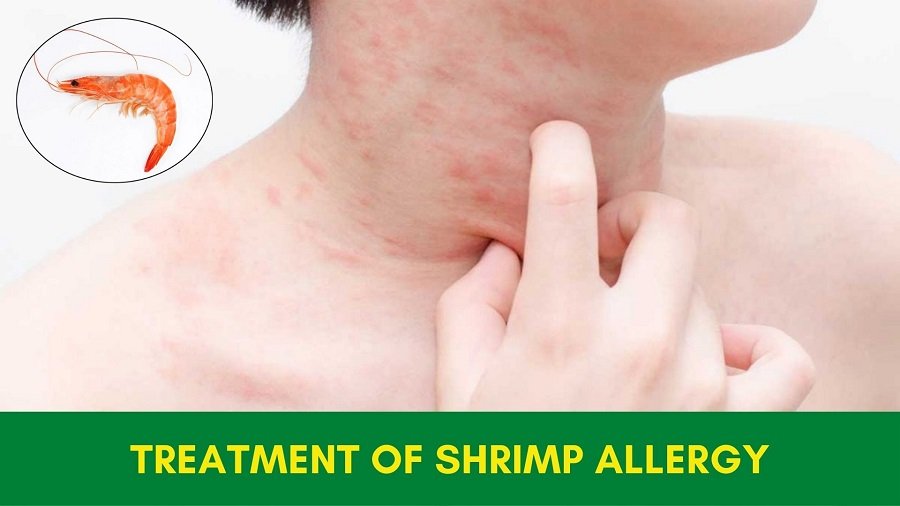Shrimps are a type of shellfish that belong to the crustacean family. Shellfish are an extremely rich source of protein and contain very low amounts of calories, carbohydrates, and fats. But despite the high nutrient content of the shellfish, it turns out that consumption of shrimp can cause allergic symptoms to certain people.
What is Shrimp Allergy?
Like fish and shellfish allergies, Shrimp allergy, in particular, is amongst the most common adult-onset food allergies. Unlike major food allergies, one may not be allergic to shrimp ever since childhood, shrimp allergy may develop later during adulthood.
Doctors recommend avoiding the consumption of other varieties of crustacean family which include crab, prawns, lobsters, and crayfish, as they might also trigger allergic reactions in a person who is allergic to shrimp.
Most often, it is not necessary that symptoms show up immediately after the consumption of an allergen as reactions to shrimp consumption are extremely unpredictable in case of a shrimp allergy. It may sometimes take as long as a week for the reactions and symptoms to show up, whereas in a few cases it may begin to show within a few minutes. Most often, allergic reactions become more severe post each consumption of shrimp.
Causes of Shrimp Allergy
- A protein called tropomyosin found in the muscles of shrimps is chiefly responsible for causing shrimp allergies.
- The immune system responds to this protein by releasing chemicals such as histamines to fight against their attack.
- The release of histamine results in various reactions in the form of symptoms that can be mild or even life-threatening at times.
- Inhalation of shrimp smell, or handling shrimp can also cause symptoms in highly sensitive people.
We will now move forward to talk about these reactions and symptoms.
Symptoms of Shrimp Allergy
- Nausea,
- Abdominal pain,
- Diarrhea,
- Vomiting,
- Tingling sensations in the mouth,
- Skin reactions like eczema, itching, hives, etc.
- Feeling lightheaded and dizzy,
- Fainting,
- Congestion,
- Shortness of breath,
- Wheezing,
- Swelling on the face, throat, ears, fingers, lips, tongue.
In severe cases, life-threatening symptoms known as anaphylaxis may also occur. In such situations, immediate medical attention is required. These symptoms include:
- A swollen throat makes it difficult to breathe.
- Loss of consciousness.
- Excessive dizziness.
- Severe drop in blood pressure.
- Rapid pulse rate.
- Shock.
- Severe drop in blood pressure.
Prevention of Shrimp Allergy
- Always enquire about the food preparation and ingredients involved in preparing a particular dish when dining in restaurants.
- One must always make sure that the cooking equipment used for making shrimp and seafood is separate from the equipment used for cooking for a person who is sensitive to shrimp and seafood.
- A shrimp-based sauce, broth, or oil may also trigger symptoms, therefore it must be strictly avoided, especially when dining in Asian restaurants.
- Inhaling vapors or steam from cooking shrimp can also cause reactions in some people.
- Cross-contamination may also lead to allergic reactions, therefore special care must be taken when eating at places that serve shrimp and seafood.
- Always be alert enough to read packet labels when consuming tinned or packaged food.
Ayurvedic Treatment of Shrimp Allergy
Treatment of Shrimp Allergy in Ayurveda is one of the best approaches to overcome the symptoms and reactions caused by the shrimp. Ayurveda believes in strengthening the digestive fire and removing the toxins from the body.
Therefore, at IAFA®, we make use of holistic Ayurvedic techniques that help in soothing the symptoms caused by shrimp allergy. Our Ayurveda experts can guide and assist you to overcome these symptoms by simple and natural herbs and ingredients available at one’s home or by providing prescribed ayurvedic medication to treat severe cases. Book your appointments now!







